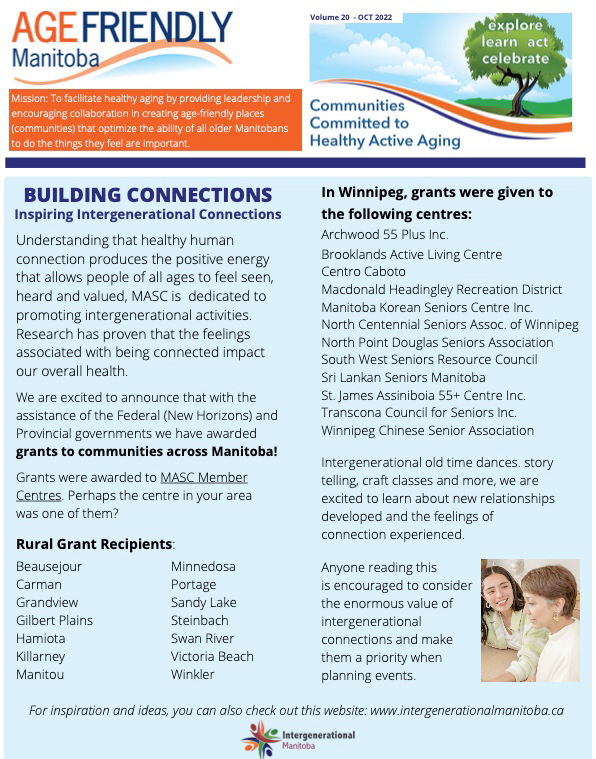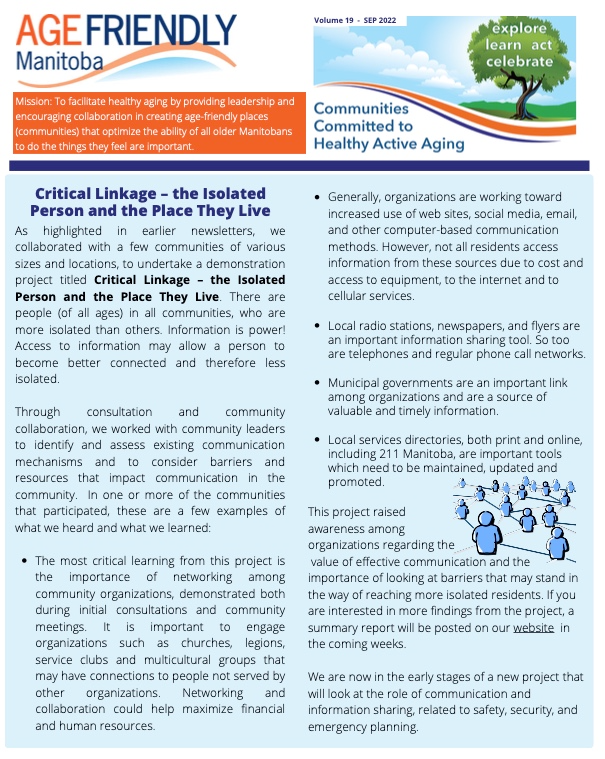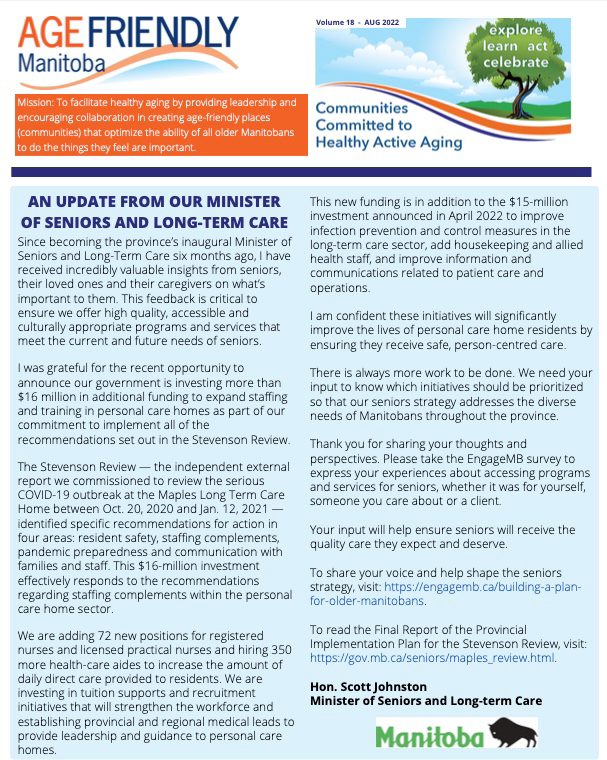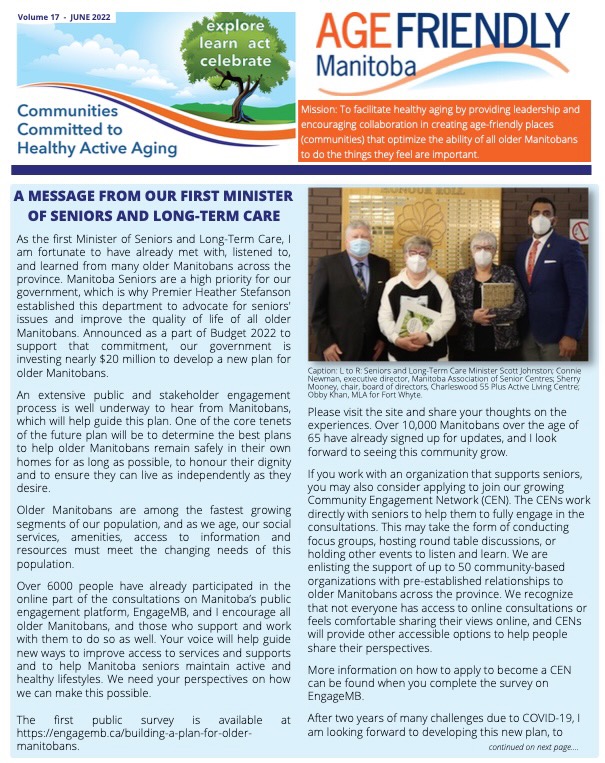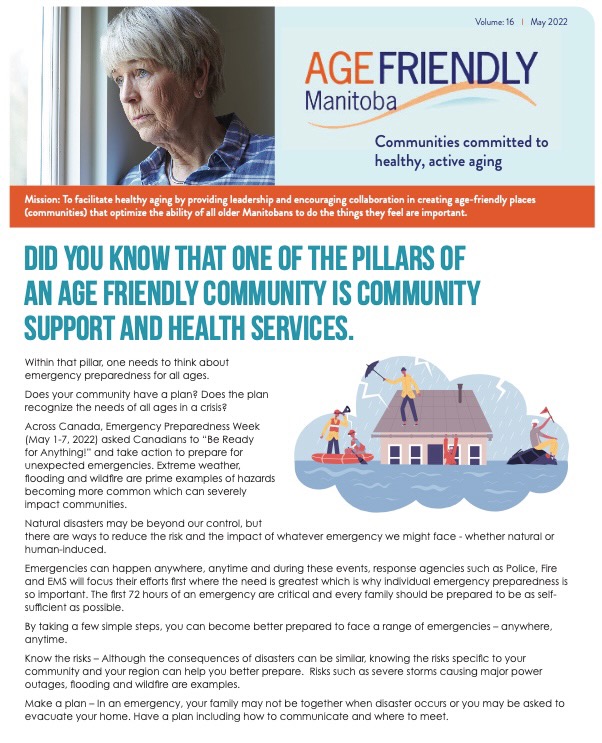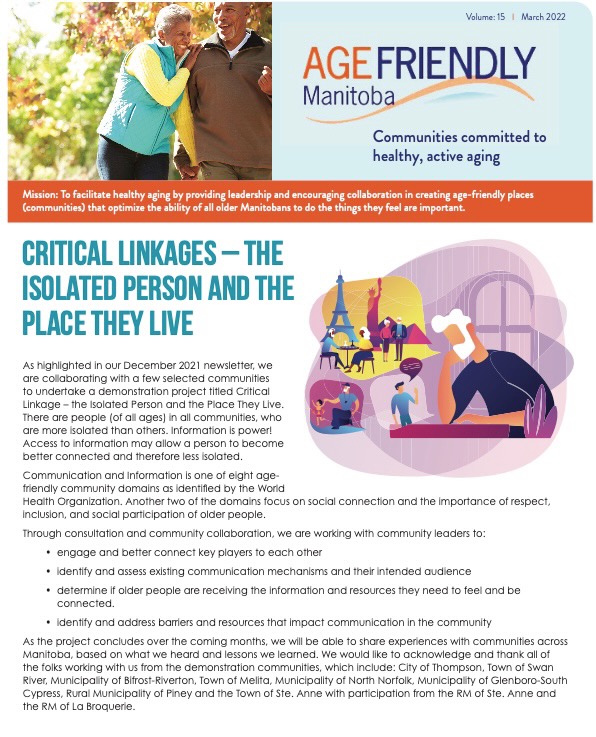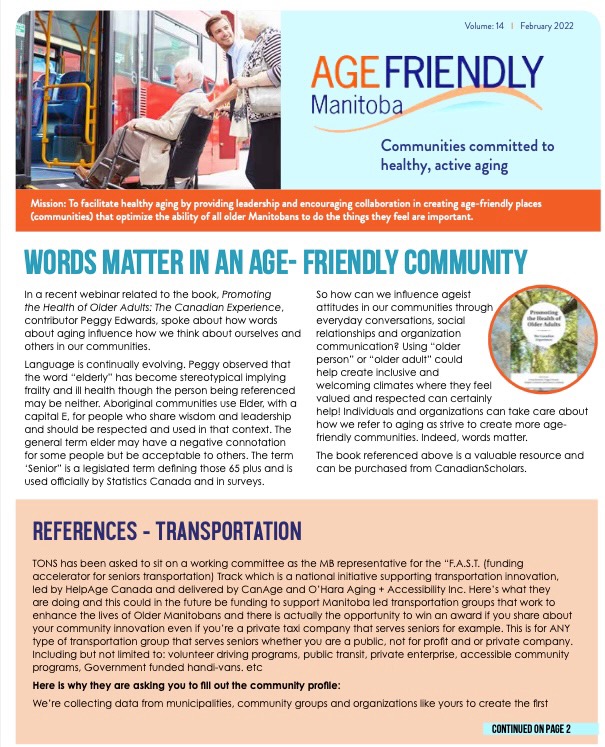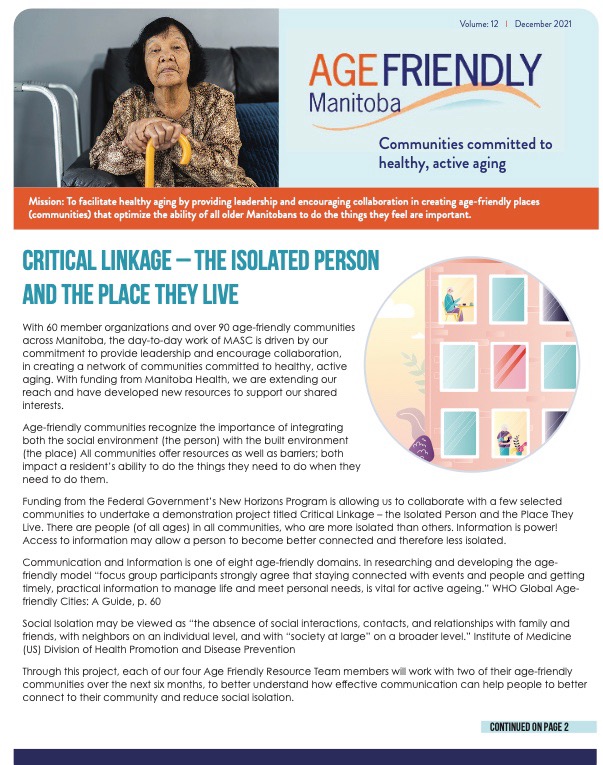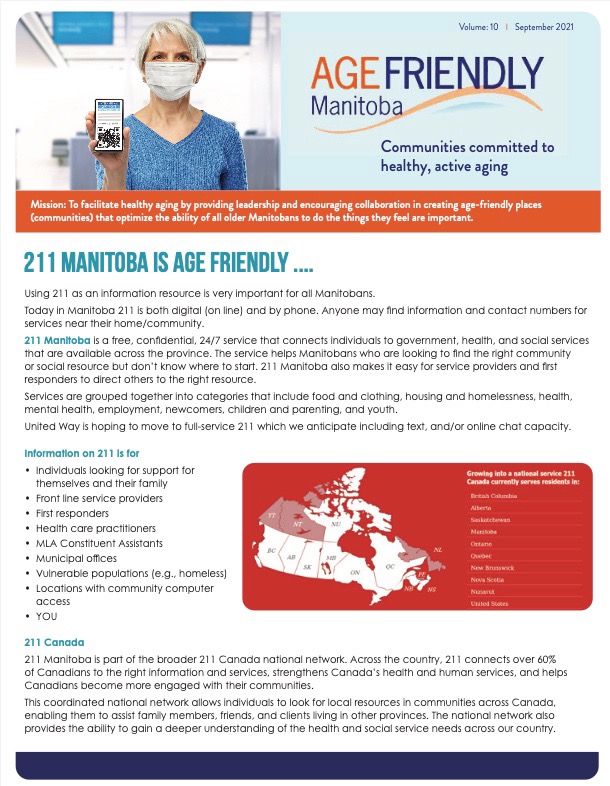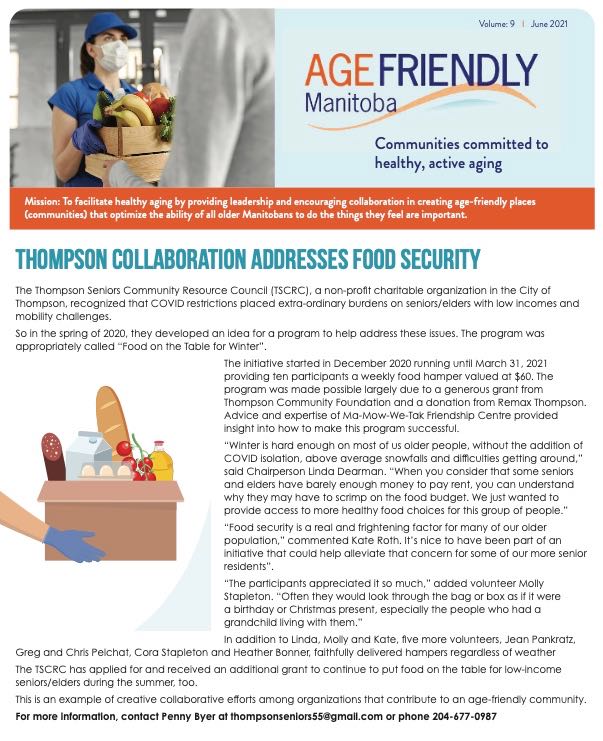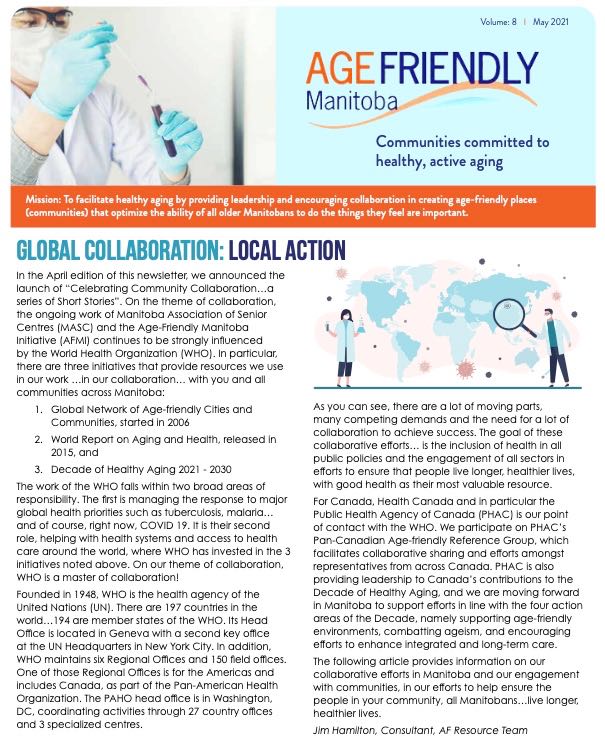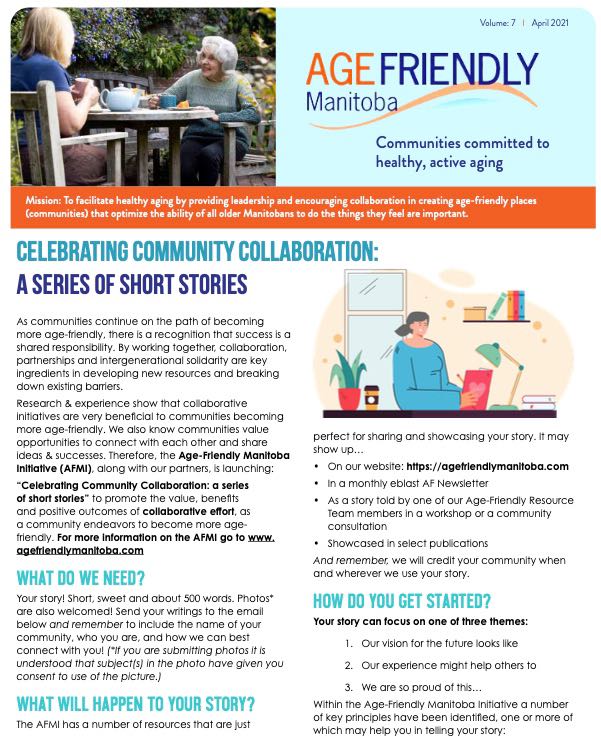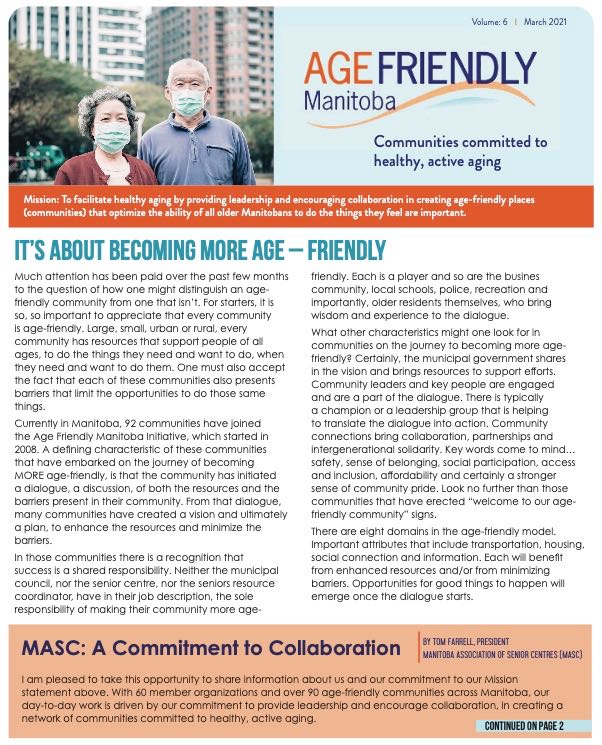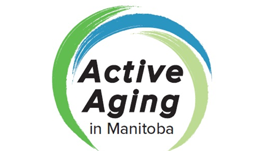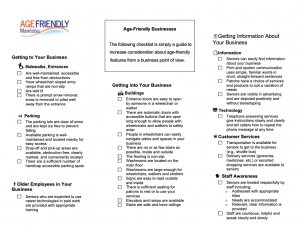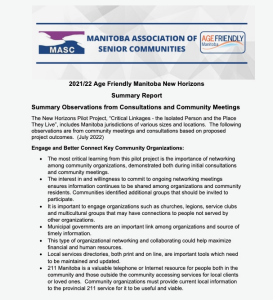Newsletters, Resources & FAQ’s
Newsletters
Age-Friendly Newsletter Volume 20 October 2022
ssagert2022-10-18T19:12:12-05:00
Age-Friendly Newsletter Volume 19 September 2022
ssagert2022-09-11T17:40:04-05:00
Age-Friendly Newsletter Volume 18 August 2022
ssagert2022-08-11T09:04:24-05:00
Age-Friendly Newsletter Volume 17 June 2022
ssagert2022-06-06T19:05:40-05:00
Age-Friendly Newsletter Volume 16 May 2022
ssagert2022-05-02T21:25:00-05:00
Age-Friendly Newsletter Volume 15 March 2022
ssagert2022-03-25T15:43:47-05:00
Age-Friendly Newsletter Volume 14 February 2022
ssagert2022-02-28T08:27:00-06:00
Age-Friendly Newsletter Volume 13 January 2022
ssagert2022-01-25T16:52:17-06:00
Age-Friendly Newsletter Volume 12 December 2021
ssagert2022-01-03T11:24:49-06:00
Age-Friendly Newsletter Volume 11 November 2021
ssagert2021-11-04T15:16:26-05:00
Age-Friendly Newsletter Volume 10 September 2021
ssagert2021-09-19T21:13:06-05:00
Age-Friendly Newsletter Volume 9 June 2021
ssagert2021-06-22T11:11:40-05:00
Age-Friendly Newsletter Volume 8 May 2021
ssagert2021-05-19T09:56:17-05:00
Age-Friendly Newsletter Volume 7 April 2021
ssagert2021-04-20T13:21:36-05:00
Age-Friendly Newsletter Volume 6 March 2021
ssagert2021-03-19T16:43:49-05:00
Resources
Manitoba
FAQ’s
Answer: Large or small, rural, remote or urban, communities throughout Manitoba, across Canada and around the world are working to become more age-friendly. Becoming more age-friendly is a shared responsibility. Residents of all ages, the business community, service providers and the municipal government all have key leadership roles to play.
Answer: Both the built and social environments of a community contain key components of the age-friendly model. Transportation, social participation and inclusion, housing, recreation, social services, health and community services as well as effective communication and opportunities for voluntarism, employment and civic participation are central to a healthy and active life.
Becoming more Age-Friendly is a shared responsibility. Residents of all ages, the business community, service providers and the municipal government all have key leadership roles to play. Viewing projects, programs, spaces and services through an Age-Friendly lens help to make the best age-friendly choices.
MASC has an Age-Friendly Resource Team that can visit communities (in person or virtual) across the Province and support local interests in becoming more age-friendly.

